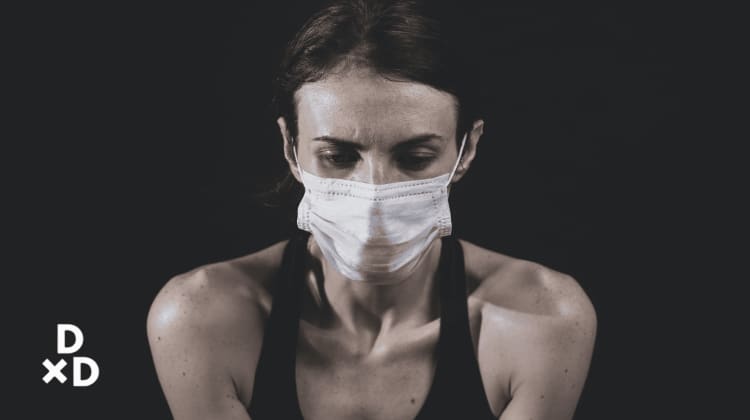What is PTSD
PTSD or Post Traumatic Stress Disorder is a condition connected with people who have experienced traumatic situations. PTSD is the brain’s natural response to a traumatic experience and can happen to just about anyone.
PTSD Symptoms
The symptoms of PTSD vary from person to person. In general, symptoms like a heightened state of anxiety, moodiness, sleepiness, persistent flashbacks of traumatic events, and avoidance of certain things and events that relate to their traumatic experiences are common. PTSD can last for years and can heavily impact a person's day-to-day life.
Without proper intervention and support from medical professionals or support networks, a person might develop negative coping strategies like drinking or smoking. It can also result in more frequent PTSD episodes that can lead them to hurt themselves or the people around them.
What Does PTSD Feel Like?
A PTSD episode is characterized by a heightened feeling of anxiety and fear. The person will also likely experience flashbacks. A flashback is a vivid experience in which a person relives a traumatic event. These flashbacks are accompanied by hearing illusory sounds and smells that heighten their feelings of distress.
Perceiving the imminent danger, the person having an episode will respond by going into fight or flight mode.
What Do You Do When Someone Has a PTSD episode?
1. Encourage Them to Breathe Deeply
A person can often feel when a PTSD episode is arriving. As it approaches, they will start to feel panic and fear. You can help by doing deep breathing exercises with them. Meditation techniques also come in useful. They help slow down breathing and lessen feelings of anxiety.
2. Talk Them Out of It
When a person is having a flashback and starts losing their grip on reality, remind them that what they are seeing and feeling is not real. Their brain is creating illusions and making them feel like they are back in the same traumatic situation. Constantly reminding them that what they are experiencing is not real will help snap them out of their flashback.
3. Make them Move as Much as Possible.
Another useful tip to overcome a PTSD episode is to keep active. Physical activity helps distract the mind and ground the person back in reality. It also releases endorphins which can immediately improve their state of mind.
Research has found that finding support from others is a major factor in helping people overcome PTSD. Besides being there with them through an episode, here are some other ways you can show your support.
4. Be a Good Listener
People with PTSD tend to isolate themselves from others. They feel burdened and don't want to share that with their loved ones. Try to encourage them to open up and listen to what they have to say.
It is important to be attentive and help them feel safe and heard. Be patient and listen to understand, not to reply. If they show signs of wanting to seek help, you can encourage them to see a medical health care professional. Fortunately, some conditions are covered by insurance plans. You can further ease costs by checking out websites like Buzzrx.com which offers further discounts and savings.
5. Offer Social Support
Social support has been found to be protective against the development of PTSD. Take the initiative to ask your friend out. Encourage them to head out and hang out with people they feel safe and comfortable with. Isolating themselves will further worsen their mental state and drive them deeper into their condition.
6. Encourage Them to Get Support Animals
Another way of coping with their condition and helping them feel less isolated is to get support from animals. Adopting a trained pet can help someone break out of a PTSD episode, especially when they are living alone. Support animals can detect the onset of symptoms, and offer the companionship that they need.
Final Thoughts
PTSD does not only happen to military personnel but to anyone that has experienced traumatic events in their lives. It's important to understand that PTSD is the body's natural response to traumatic events and can happen to anyone at any moment.
Learn to recognize the symptoms of PTSD. If you have a loved one with PTSD, offer support and help them feel safe and loved. However, being there for someone with PTSD can also be physically and emotionally draining for yourself. Always remember to take time for yourself, as challenging as it can be.
